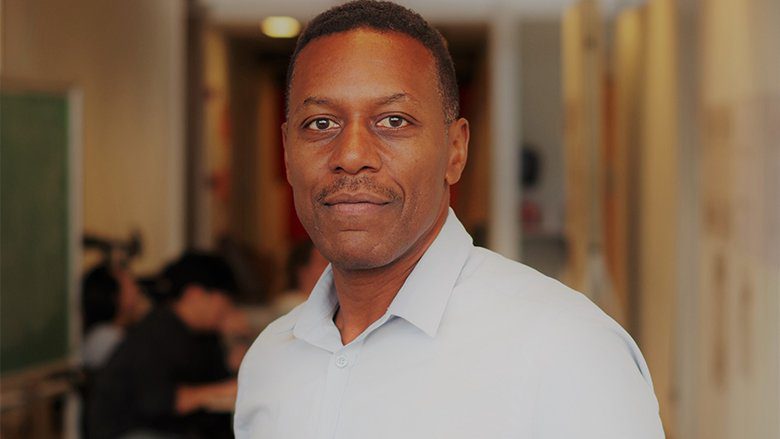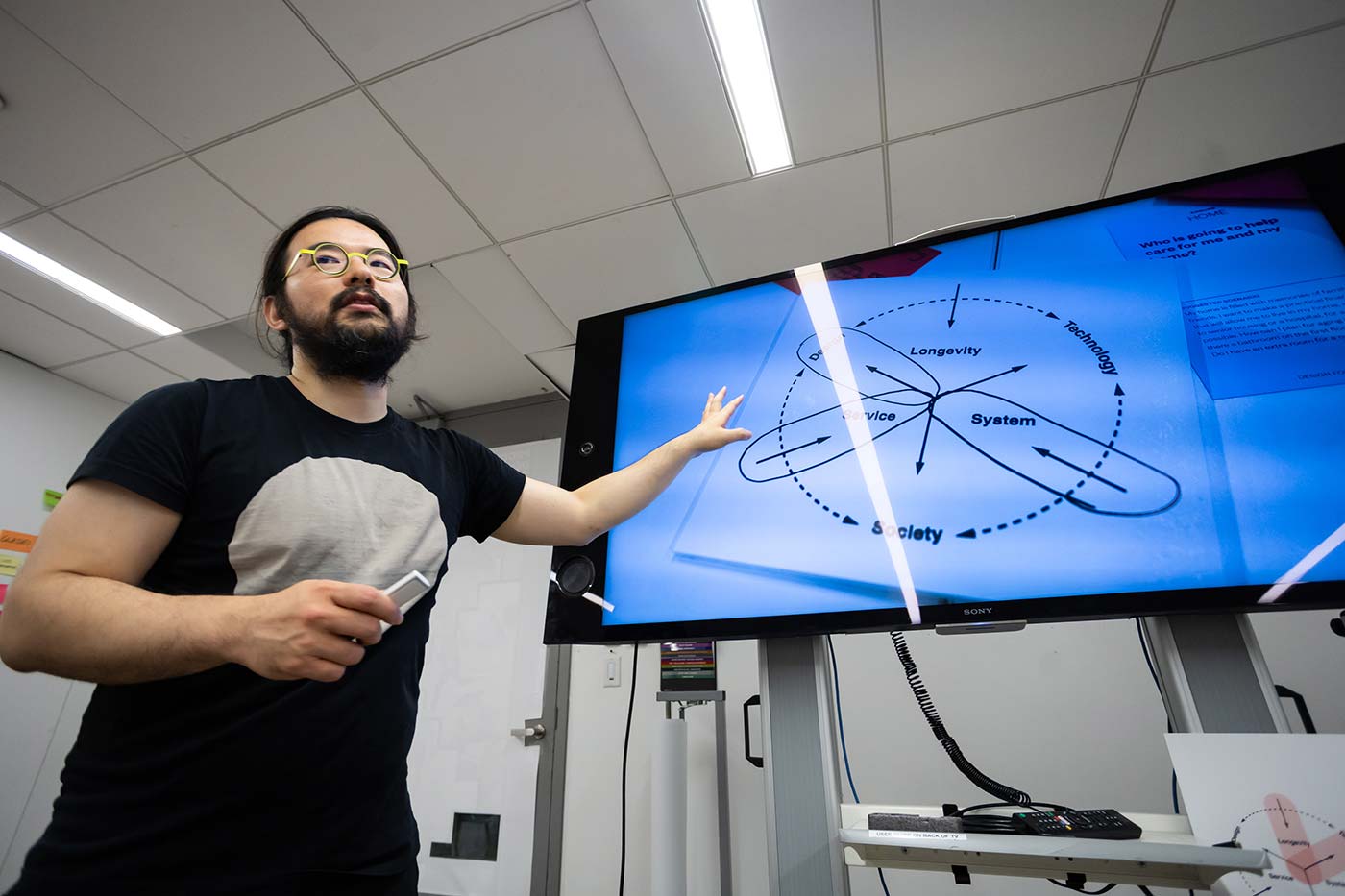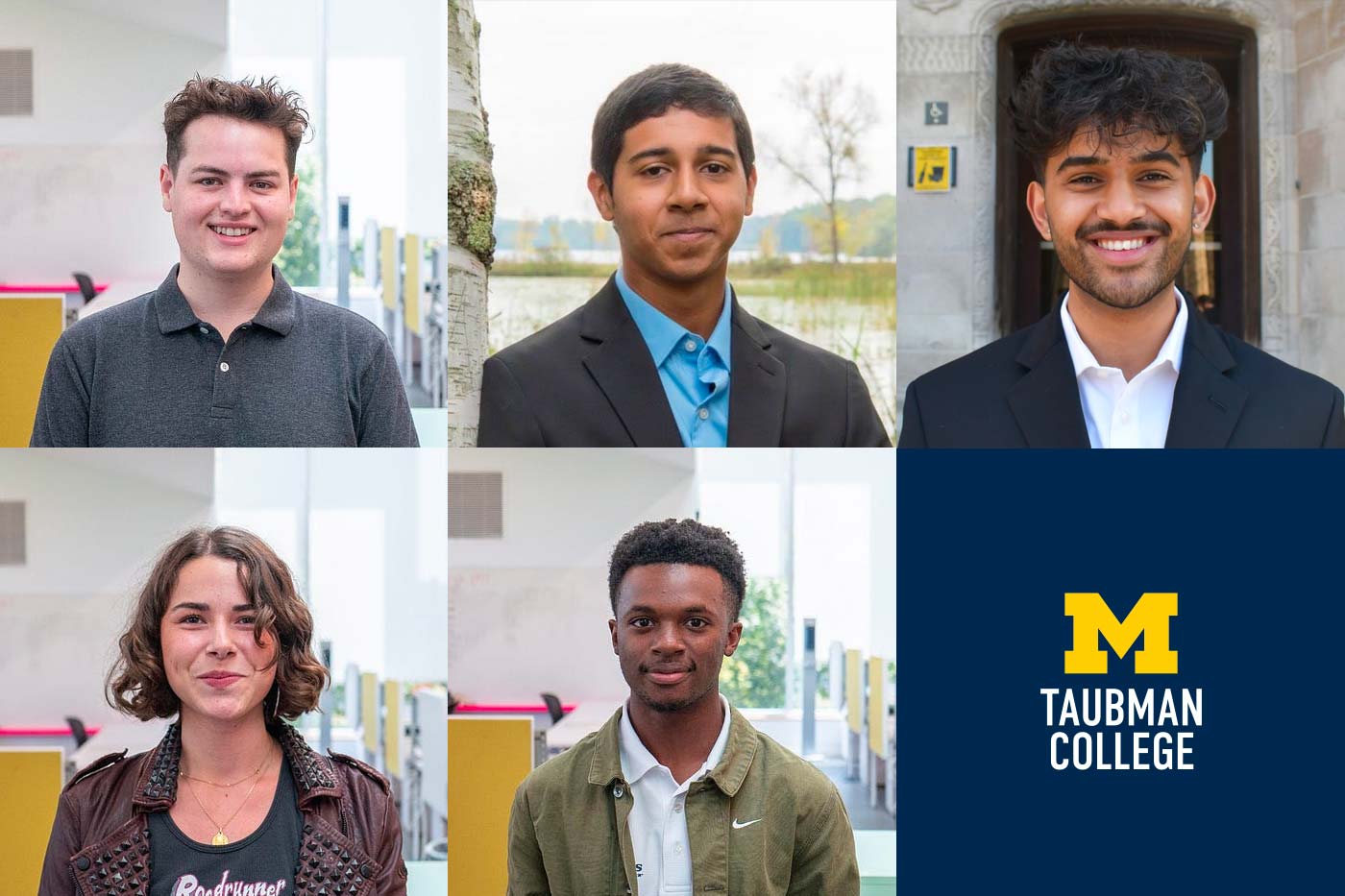
IN THE NEWS: Norman Talks Equitable Development in Crain’s Q&A
The following story originally appeared in Crain’s Detroit Business. It features Marc Norman, associate professor of practice in urban and regional development, who recently organized the daylong “Building Better Futures: Innovations in Equitable Development” conference at Taubman College. The conference brought together key Detroit stakeholders and prominent developers to talk about the concept of equitable development and how it can be promoted.
Marc Norman: Detroit can learn from other cities how to manage equitable development
Marc Norman, an associate professor of practice in urban and regional planning in the University of Michigan A. Alfred Taubman College of Architecture and Urban Planning, in October was named to the Federal Reserve Board’s Community Advisory Council for a three-year term that began this year. Now Norman, 52, has organized a conference, “Building Better Futures: Innovations in Equitable Development,” that was held Friday featuring key Detroit stakeholders and prominent developers to talk about the concept of equitable development and how it can be promoted.
Norman is a graduate of the University of California-Berkeley and the University of California-Los Angeles. He has worked for the Los Angeles Planning Department, housing nonprofits, and in leadership positions with Lehman Bros., Duvernay + Brooks LLC and Deutsche Bank working on things like financing for affordable housing and economic development, according to his UM bio.
He spoke with Crain’s reporter Kirk Pinho on Thursday before the daylong conference in Ann Arbor.
Crain’s Detroit Business: For our audience, what is equitable development?
Marc Norman: For me, it is development that takes into account sort of historic moments where people were excluded either from ownership or opportunity. It’s development that understands the kind of historical patterns that excluded people from wealth opportunity and housing options and incorporates that history when thinking of current development.
How are we seeing that exclusion manifest itself today from your perspective?
This applies to Detroit, but not exclusively, in the racial wealth gap. I think at the minimum, African-American families have about 10 times less wealth than others. There’s historic legacy discrimination in lending in housing. It’s about opportunity, as well. The choices that were made around subsidies or infrastructure, and how those either harmed or benefited people inequitably.
What can be done to address this?
I don’t have the answer. I wish I did. One of the reasons for the conference is to bring many different people together from all sides of the development ecosystem to have a conversation about how they are tackling the issue — in terms of how developers are working with cities and nonprofits, how policymakers are rethinking their systems of regulations and rules, how journalists are writing about neighborhoods and how they highlight innovation or change in neighborhoods.
This is obviously not just a Detroit issue, but one that exists elsewhere.
I think what’s interesting about this topic is every city has the same issues, but they manifest themselves in different ways. For example, the Bay Area has a really pernicious and intractable homelessness crisis and a real struggle with affordability. Detroit has a real struggle with affordability but it’s not necessarily housing values but incomes or access, or issues around mobility. I think a lot of cities have similar issues, but it just works itself out differently where you are. I think some of the main issues are housing affordability and opportunities for good jobs and wages.
What are some policy prescriptions, if any, that can address this?
I think Detroit still, even with investment in the last 5-10 years that’s been pretty profound, is incredibly affordable in comparison to other cities. The real issue is if people’s incomes aren’t going up or if people’s access to jobs aren’t going up, you can build all the affordable housing in the world and it won’t address the problem.
That’s a little over the top to say, but if people’s incomes are less than the cost to build the unit, that’s always going to put you behind. If every unit has to be subsidized, you’re going to have a very hard time solving the problem of affordability for people, so it has to be a multipronged strategy of reducing the cost of housing but increasing the incomes of people you are trying to serve.
What are the things you hope people realize from the conference?
Half of the day is devoted to people from a range of industries that are working in Detroit. What I’m excited about is that they’ll be in dialogue from people around the country working on these issues.
The takeaway is where is the innovation happening and how can it be replicated in other places. Detroit is innovating in a lot of interesting ways, and for let’s say a city like New York or San Francisco or Washington, D.C., Detroit might be able to model a way before the investment overwhelms neighborhoods or people that don’t currently have the ability to benefit from investment to model a kind of equitable outcome for that investment coming in.
I think cities were a little taken apart and swamped by tech money or foreign investment, like New York, that had an impact like housing values and other issues. I think Detroit has seen what’s happening in other cities and can learn from those cities to create better or more equitable outcomes as more investment comes into Detroit — more opportunities for wealth creation, opportunities for higher paying jobs.









